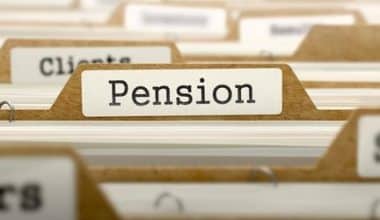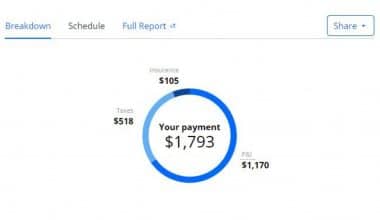If you don’t pay your bills on time, a collection agency or debt buyer will keep track of your account. It keeps track of debt that you’ve accumulated and been delinquent on for an extended period, which the lender has transferred to a third-party debt collection agency. The sale or transfer of your collection account does not relieve you of the need to repay these debts. Collections on your credit report can lower your score. Collections, debt, and agency are all terms used in this context. How do you dispute a collection account? How do I pay off the debt in collections online? What impact do collections have on your credit report? Read on to find out more.
What are Collections?
When referring to money owed to a company by a customer, a company uses the phrase “collection.” When a customer doesn’t pay a business by the due date, the bill is considered overdue and is sometimes sent to a collection agency.
Also, when a company sells a product or service to a customer, payment is expected either immediately or within a set period, such as 30 days. Sadly, some customers do not pay the company within the agreed-upon conditions, and the account is now in collections.
When Do Accounts Get Sent to Collections?
If you don’t pay a bill, the debt is turned over to a collection agency. The amount of time that passes before the debt is released to collections depends on the type of loan. Unpaid credit card debt, for example, is normally turned over to an internal collections agency when it has been unpaid for more than 30 days. This usually happens “within a few months of the original delinquency date,” according to Experian. Foreclosures, which happen when mortgages aren’t paid, can take a lot longer and are governed by the laws of the state where they were given.
What is a Collections Agency
A collections agency is a company used by lenders or creditors to recover funds that are past due or from accounts that are in default. When a creditor has tried and failed to collect a debt on their own, they may hire a collections agency. A lender may contract debt collection to a third party (the collection agency), or it may have an internal department or a debt-collection subsidiary that does the task.
How a Collections Agency Works
When a borrower defaults on their loans or fails to make regular loan payments, the creditor will report the delinquency to a credit bureau. The borrower’s credit history will be ruined, and their debt will be turned over to a collection agency within three to six months of default.
When a Borrower Pays
If the borrower pays their debt as a result of the collection agency’s efforts, then the creditor pays the collection agency a percentage of the funds, or assets, that it recovers. Based on the original agreement with the creditor, the debtor may be required to pay the entire debt at once or a portion of it at a time.
When a Borrower Fails to Pay
If the borrower continues to refuse or is unable to pay their arrearage, the collection agency can update the borrower’s credit report with a “collection” status, resulting in a decrease in the individual’s credit score. A low credit score can damage a person’s prospects of getting a loan in the long run because a debt collection account can stay on their credit record for seven years.
Collection agencies use many different ways to try to get the money back, including:
- Making personal and business phone calls to the debtor
- Sending multiple late-payment notices to the debt or
- Contacting a debtor’s family, friends, and neighbors to confirm the debtor’s contact information
- Showing up at the person’s front door
What Is Collections Debt
Debt collection is when a collections agency or firm tries to get borrowers to pay back the money that they owe. If you haven’t paid your loan or credit card payments and they are badly past due, you might receive a call from a debt collector.
A debt collections agency may come after you for money owed if you co-signed a loan or are an authorized user on someone else’s credit card. Such past-due bills can include anything, including:
- Medical debt
- Car/auto loan debt
- Personal loan debt
- Credit card debt
- Student loan debt
- Unpaid utility and phone bills
Debt collectors are third-party companies that collect debt on behalf of another company. If a company works for the original creditor, the creditor pays the debt collector a percentage of the debt collected. Sometimes, debt collection firms will buy out the original debt for pennies on the dollar after you fail to repay the original creditor—and then go after you.
How Does Debt Collection Work?
Depending on the company collecting the debt, debt collection procedures may differ. Some organizations only deal with one type of debt, such as medical debt or student loan debt. Others may be dealing with debt that’s a few years old. Others might not deal with debt if it has passed the statute of limitations, which varies by state.
Collection agencies can pursue old debt as soon as it is a few months past due and endlessly thereafter. It depends on the organization collecting the debt, how much you owe, and the type of debt you have.
If you have unpaid past-due debt, you will usually be notified via written notices and phone calls from your original creditor. For example, if you stopped paying on an old student loan, your lender will contact you to bring the account current. It will finally stop if it is unable to get you to pay what you owe. That is usually when the debt collector takes over from the original creditor.
How to Handle a Collections Debt
This step-by-step approach will assist you if your debt is placed in collections.
#1. Verify that the debt is yours.
Debt collection agencies are required by the FDCPA to send you a debt validation letter before you pay anything. This is a crucial step in the process because it confirms if the debt does belong to you. A debt validation letter will also include the amount owing, the type of debt owed, information about the creditor, and other pertinent information. You have 30 days to dispute the debt if there are any inaccuracies.
#2. Explore your payment options.
You normally have two alternatives for paying down your debt. You can pay off your balance in a flat sum or through a repayment plan. Your budget and the amount of debt you owe will determine the best course of action. Calculate how much you can reasonably put down before deciding on a plan. You might be able to negotiate a repayment plan for less than what you owe, or you might engage with a credit counselor or enroll in a debt management program.
#3. Start making payments.
Before you start making payments, contact your debt collector and request a written arrangement. You can start making payments once you have received the agreement and thoroughly examined the contents for accuracy. When you’ve made your initial payment, contact the collector to ensure that it was received, and keep track of every payment you make for future reference.
What are Collections on Credit Reports?
Collections on your credit record are made by a third party who is not your lender. This is because an outstanding debt has been sold to a debt collection agency, which will make an effort to collect the debt. Any sort of debt, including medical bills, charged-off card debts, and even overdue household expenses, can be sold to a collections agency. Collections might be difficult to understand. Yet, knowing a few fundamentals can help you browse collections successfully.
What Does a Collections Account Mean on a Credit Report?
A collections account on a credit report indicates that a lender sold the right to collect on an unpaid debt to a third party, sometimes referred to as a collection agency. Because a collection is a failure to pay a payment, a recent collection can have a major influence on your credit score.
How Does a Debt in Collections Affect your Credit?
Your credit score may be negatively impacted by an outstanding debt in collections. If you have an account that is past due, your creditor may tell the credit bureaus about it. This will cause your credit score to go down.
Collections can stay on your credit report for up to seven years from the first delinquent date. Collections can remain on your credit report for up to seven years. The impacts of this account should fade with time. The account should be removed from your credit report after seven years. If it doesn’t, you can submit a dispute with the relevant credit bureau and get it deleted.
Yet, there are specific circumstances in which debt collection will not affect your credit score. The country’s three credit bureaus announced changes to medical debt reporting procedures earlier this year.
Effective July 1, medical collection debt that has been paid off will no longer display on your credit record. That means that if a medical bill was sent to a collection agency and showed up on your credit report, it will be deleted.
How to Pay Off Debt in Collections Online
Before committing to paying off the debt in collections online, check that the debt is yours and the collector is legit. Using your bank’s online bill payment service is the safest way to pay off collections online. It’s more secure than providing collectors with your information via ACH transfer or personal check. You should also avoid methods like paying with a credit card, which essentially transfers your debt to a new account.
The Best Way to Pay Off Collections
Use these methods to pay off a debt that is in collections.
#1. Make sure the debt is yours.
Make no payments until you have confirmed that the debt is correct and that you owe it. Verify that the amount mentioned is correct and that the collector is legitimate. You should ask the collector in question for a validation notice and then check it with the Better Business Bureau or your state attorney’s office.
#2. Create a budget
Look at your budget and current financial situation to figure out how much debt you can pay off. Determine how much you can put toward your debt by comparing your take-home pay to your monthly costs. If necessary, look for ways to save a little additional money each month, such as cutting back on discretionary things like eating out and streaming services.
#3. Make an effort to get an agreement on a lump sum.
See if your collector will negotiate. Offering a lump sum that is less than what you owe is the best strategy to discuss paying off collections. For example, if your debt is $3,000, you could see if they’d be willing to settle for $2,000 now. If you can pay off a large portion of your debt at once, your odds of your collector accepting your offer will increase.
#4. Develop a debt payback strategy
You might also ask the collector whether you can pay what you owe in installments. With a short-term payment plan, you’ll repay your debt on a specified schedule with fixed installments. You could also think about a debt management plan, which lets you set up regular payments to your collectors.
#5. Uphold discipline
Always note the name, contact information, and specifics of what you discussed with the debt collector. If you reach an agreement, get a written copy. You won’t have much proof of what you agreed upon without a name or contract.
#6. Examine your credit report
Your debt will remain on your credit record, but it should be updated to reflect that it has been paid in full. This can take several months. If you notice that it’s taking longer than that, you can reach out to your collector or the three main credit bureaus (Experian, Equifax, and TransUnion) to update the information.
What happens if you get sent to collections?
Third-party businesses tasked with collecting past-due debts are known as collections agencies. They’ll call you, send you letters, and try to persuade you to repay the debt. If they are successful, they will receive a portion of the recovered funds.
What are collections in business?
When referring to money owed to a company by a customer, a company uses the phrase “collection.” Also, when a customer doesn’t pay a business by the due date, the bill is considered overdue and is sometimes sent to a collection agency.
Can collections take money from your bank account?
If a debt collector has a court order, they may be able to take money from your bank account or paycheck to pay off your debt. Some debts owing to the government may be garnished even without a judgment.
What happens if I don’t pay collections?
If you refuse to pay a debt collection agency, they may bring a lawsuit against you. Lawsuits against debt collectors are serious business. You can’t just ignore them and hope they go away.
What are the three types of collections?
There are three types of collections: ordered lists, dictionaries/maps, and sets.
What is the purpose of the collection?
Collection development involves locating copies of materials. There has been a tendency, which is getting less common, to use the term only to talk about choosing what to buy.
What is the role of collections?
In general, collections specialists are in charge of handling and collecting all outstanding client and customer accounts receivable.
Conclusion
Collecting a past-due debt is a legal method for creditors and debt collection companies to recover money that is owed to them. If you’re late on payments or haven’t made any at all, you owe it to businesses to repay that money. Otherwise, you may receive a slew of calls and letters from debt collectors attempting to collect a debt.
Even if you owe money, you have the right not to be scammed or treated badly when trying to get it back. You can take immediate action if someone is pressuring you to collect a debt. Call federal agencies or your state attorney general to submit a complaint.
Related Articles
- How To Pay Collections: Step-by-step Guide
- AFFILIATE ASSET SOLUTIONS: 2023 Comprehensive Reviews & All You Need
- COLLECTION AGENT: Job Description, Roles & Responsibilities
- Bill Collector: Meaning, Duties & Salary
- UNSECURED DEBT: Definition, Types, and Examples






